Definition
Constipation is the infrequent and difficult passage of stool. The stool may be too hard, infrequent, small or difficult to expel. In some people, constipation is sudden and often a manifestation of another abdominal problem, such as a bowel obstruction. The incidence of constipation increases with age and is most common after 60. A change in bowel habit (without a change in diet) is a significant symptom which should be brought to the attention of your doctor.
Constipation
Types of Constipation
Acute constipation: Acute constipation as the name suggests comes on abruptly and may end up being severe enough to require immediate medical assistance to discover the cause. Psychosomatic constipation is usually caused by too much stress such as if someone is under pressure at work or they are traveling, etc. It usually goes away if the outside cause is taken away.
Hypotonic constipation: If someone has a chronic version of constipation that is when hypotonic constipation can happen. This type of constipation is caused by a week abdominal muscle and the person is unable to defecate normally because the muscles are too weak to work properly in the intestines. It can be caused by many things such as being too sedentary, not enough fiber in the diet, and not enough water in the diet.
Spastic constipation: The opposite of this is hypertonic, which is also called spastic constipation. This means the person experiences cramps and pain, but still can’t defecate. The stool instead doesn’t move through the intestines properly. This can cause someone to develop irritable bowel syndrome, a condition of alternating diarrhea and constipation.
Rectal constipation: Rectal constipation is caused by a person’s bathroom habits. It happens when someone repeatedly doesn’t go to the bathroom even when they feel the urge to defecate, which eventually causes the body to refuse to send the proper signal to the brain to produce a bowel movement. Then, the person will get dried up stool inside the intestines and become obstructed and unable to defecate.
Functional constipation: Functional constipation means that a reason can’t be found as to why a seemingly healthy individual develops constipation and no cause can be found. There is also a similar type of constipation called idiopathic, which doesn’t respond to regular treatment. Idiopathic constipation seemingly has no cause as well and is sometimes hard to treat since the doctor doesn’t know what started it.
Risk factors
The American Academy of Family Physicians mentions these risk factors:
- Getting less than 20 grams to 35 grams of dietary fiber each day.
- Getting insufficient fluids, which allows stools to dry out.
- Getting insufficient exercise.
- Avoiding passing bowel movements when you feel the urge.
- Taking certain medications, such as opiates.
- Undergoing changes in your life or routine, including travel or pregnancy.
- Having certain diseases or conditions, such as diabetes, lupus or multiple sclerosis.
- Having an intestinal problem, such as an obstruction, irritable bowel syndrome or a tumor.
Causes of Constipation
The most common cause is an irregular intake of food, especially junk food.
- Lack of physical exercise.
- Prolonged sitting
- Smoking and Alcohol abuse
- Insufficient sleep
- Less intake of water/fluids
- Irritable bowel syndrome
- Traveling
- Pregnancy and childbirth
Symptoms
Symptoms of constipation include:
- Infrequent bowel movements
- Straining when going to the bathroom
- Hard and/or small feces
- The sense of incomplete evacuation after going to the bathroom
- Lower abdominal discomfort
- Abdominal bloating, occasionally distension
- Anal bleeding or fissures from the trauma caused by hard feces
- Occasionally diarrhea due to obstruction of the colon by hard stool
- Rarely, colonic perforation
- Psychological distress and/or obsession with having to go to the bathroom
- Possible aggravation of diverticular disease, hemorrhoids, and rectal prolapse
Complications of Constipation
Constipation is most often acute, meaning that it appears suddenly and lasts for a short time.
These potential complications include:
- Hemorrhoids (swollen, inflamed veins in the rectum or around the anus that may cause rectal pain and bleeding)
- Anal fissures (small tears in the skin around the anus that are often accompanied by itchiness, pain, and bleeding)
- Fecal impaction (inability to push stool out because it has hardened and packed in the colon and rectum too tightly)
- Rectal prolapse (a condition in which part of the rectum sticks out of the anus)
Diagnosis and test
In addition to a general physical exam and a digital rectal exam, doctors use the following tests and procedures to diagnose chronic constipation and try to find the cause:
Blood tests: Your doctor will look for a systemic condition such as low thyroid (hypothyroidism).
Examination of the rectum and lower, or sigmoid, colon (sigmoidoscopy): In this procedure, your doctor inserts a lighted, flexible tube into your anus to examine your rectum and the lower portion of your colon.
Examination of the rectum and entire colon (colonoscopy): This diagnostic procedure allows your doctor to examine the entire colon with a flexible, camera-equipped tube.
Evaluation of anal sphincter muscle function (anorectal manometry): In this procedure, your doctor inserts a narrow, flexible tube into your anus and rectum and then inflates a small balloon at the tip of the tube. The device is then pulled back through the sphincter muscle. This procedure allows your doctor to measure the coordination of the muscles you use to move your bowels.
Evaluation of anal sphincter muscle speed (balloon expulsion test): Often used along with anorectal manometry, this test measures the amount of time it takes for you to push out a balloon that has been filled with water and placed in your rectum.
Evaluation of how well food moves through the colon (colonic transit study): In this procedure, you may swallow a capsule that contains either a radiopaque marker or a wireless recording device. The progress of the capsule through your colon will be recorded over several days and be visible on X-rays.
In some cases, you may eat radiocarbon-activated food and a special camera will record its progress (scintigraphy): Your doctor will look for signs of intestinal muscle dysfunction and how well food moves through your colon.
An X-ray of the rectum during defecation (defecography): During this procedure, your doctor inserts a soft paste made of barium into your rectum. You then pass the barium paste as you would stool. The barium shows up on X-rays and may reveal a prolapse or problems with muscle function and muscle coordination.
MRI defecography: During this procedure, as in barium defecography, a doctor will insert contrast gel into your rectum. You then pass the gel. The MRI scanner can visualize and assess the function of the defecation muscles. This test also can diagnose problems that can cause constipation, such as rectocele or rectal prolapse.
Treatment and medications
Treatment depends on the cause, but could include:
Removal of the impacted feces which may involve enemas, stool softeners and a short-term course of laxatives.
Dietary changes such as increasing the amount of fiber in the daily diet. Dietitians generally recommend about 30g of fiber every day. Good sources of fiber include wholegrain cereals, fruits, vegetables, and legumes. The intake of foods such as milk, cheese, white rice, white flour and red meat should be restricted because they tend to contribute to constipation.
More fluids liquids help to plump out feces. However, it is important to restrict the intake of diuretic drinks such as tea, coffee, and alcohol.
Fiber supplements may be helpful if the person is reluctant or unable to include more wholegrain foods, fresh fruits or vegetables in their daily diet. As fiber supplements can aggravate or cause constipation, always check with your doctor or dietitian when using them.
Exercise is one of the many benefits of regular exercise is improved bowel motility. Ideally, exercise should be taken every day for about 30 minutes. People with a condition that affects mobility need to be as active as possible each day, as every little bit of regular exercise helps.
Treatment for an underlying disorder such as surgery to repair an abdominal hernia, hormone replacement therapy for hypothyroidism, or anesthetic cream and sitz (salt water) baths for an anal fissure.
Laxatives are of two main types: bowel stimulants and agents that increase the water content of the stool. Bowel stimulants increase bowel contractions but may cause cramps. Agents that increase the water content may interfere with the absorption of water from the bowel, or swell or bulk up the stool with fluid. When used appropriately, laxatives can greatly relieve acute and chronic constipation. There is little evidence that chronic use of laxatives at appropriate doses will lead to a ‘lazy’ or ‘twisted’ bowel.
Prevention of Constipation
Certain foods and drinks and the proper amount of exercise can help alleviate the symptoms of constipation.
Foods and drinks:
- Eat high-fiber foods such as raisins, raw vegetables, salads, bran cereals, whole-grain bread and fresh fruit.
- Eat prunes or figs.
- Eat oatmeal, applesauce, legumes (dried beans) and barley, to soften the stool.
- Flax meal can be purchased already ground. Or, you can buy the seeds and grind them yourself. Flax meal is a good source of natural fiber and health-promoting Omega-3 fatty acids. It can be stirred into or sprinkled on foods.
- Drink plenty of liquids at least eight glasses a day. Water and herbal tea are best. Juices are not recommended, nor are caffeinated drinks, as your body can become dependent on these in the long run.
- Drink several cups of warm-to-hot liquid in the morning. Herbal teas or water work well.
Exercise:
- Do daily exercise, like a brisk half-hour walk.
- Visit the toilet for 15 minutes in the morning, even if you are unable to have a bowel movement. This relaxes and stimulates your digestive system.
- Sit quietly for 15 minutes after eating a meal to aid in digestion.
 Diseases Treatments Dictionary This is complete solution to read all diseases treatments Which covers Prevention, Causes, Symptoms, Medical Terms, Drugs, Prescription, Natural Remedies with cures and Treatments. Most of the common diseases were listed in names, split with categories.
Diseases Treatments Dictionary This is complete solution to read all diseases treatments Which covers Prevention, Causes, Symptoms, Medical Terms, Drugs, Prescription, Natural Remedies with cures and Treatments. Most of the common diseases were listed in names, split with categories.
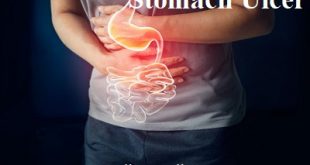
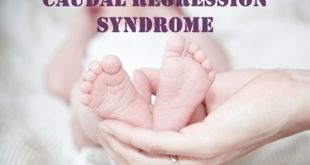
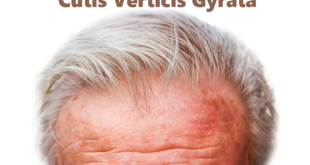
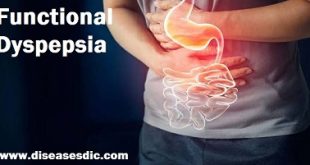
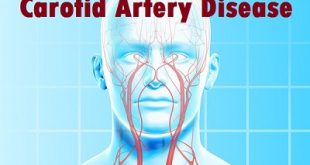
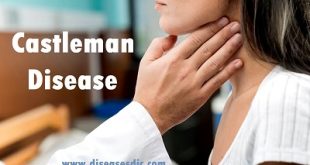
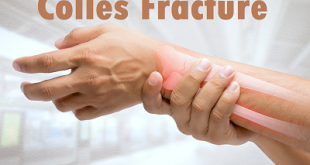

better to involve the information about constipation using medicinal durgs
Okay, sure our group will work on your request. Please stay tuned. Thank you.
studied your latest informaion about constipation.it is awesome useful and informative.thanks alot for providing so impotant info.
please sir deafness detail explain types of hearing aids
Yes, sure we will upload a topic to your requirement. Stay tuned, Thank you.
I likes more than happy with it.
This is really good and I always give kudos to you on how you inform and educate on each topic. Thank you.
Nice pathology
lovly lacture
very much thankful and appreciated ????
I appreciate this very informative ???
nice one
thank you very informative
this is amazing. ..although I was wondering if there is a way that one can type symptoms then the disease will pop out…it makes t easy go find whats wrong with someone without doing the guess work and comparing whether the disease suits my symptoms.
I am awed by human effort. God bless givers.
which medicine will given
Milk of Magnesia is better.
kindly if you could include constipation in neonates and infants
yes, sure we will upload stay tuned.
Thank you so very much for this wonderful insight of health.
thanks for this useful publication.
nice pathology plz midwifery related disease condition ap send kijiye
They may acquire some communicable diseases.
God bless your good works
step by step from the root cause to treatment is perfect.
I go once in two days for toilet,i feel very uneasy please tell me the medicine
have some natural food items which contain high fiber.
Can i get medicinal treatment for constipation
Please read the given treatments in the post.
thanks you for prepared this benefit books explained the constipation
it is helpful to us medical practitioners since it adds more information. thx
just ready on constipation and I loved the way it was presented and it well understood.
please my stomach is making noise most especially when i finished eating what sign is that?
Thanks
it had been an interesting experience to see the benefit of this application I thanks for all of your concerns about people’s health
good
Am so greatful for this wonderful health tip’s you shared with me, I have been having this problems for quite sometimes now going from one hospital to another to no avail. The worst is that mine is the type one please more lights one type one please!
Sure we will update more regarding type one constipation. Keep reading our app. thank you.
I appreciate your professional advice on this topic. I’m suffering in silent.
please upload drugs and dosage
also… ll be more useful
Sure we will upload very soon. keep using our app. thank you.
i hitted by constipation i consult many docters they recommend som laxatives..which cure me but after disuse i hit again by constipation
Eat fiber-rich foods, so that you can get cure from constipation.
im sure its going to help me constipation is hating me
Thank you for your comments.
I have consumed almost 6 boxes of aural, and i have noticed nothing changes in my hearing.
Please consult a doctor to get rid of this problem.
please l also need a treatment of a pimples.
l dey feel ur assistant paaa.
Thank u v3ry much.
Please read at http://diseasesdic.com/acne-definition-causes-complications-treatment/
sir I am sorry it’s just not possible to sit in the toilet for 15 minutes passing nothing
Please consult a doctor to diagnose the cause and get appropriate treatment.
I felt some contraction in my muscles due to inability to pass out waste on time as I was traveling and ever since then I have been having difficulty in emptying my bowels,now I am having lower back pains,what can you advice cos I have seen the doctor no improvement
please use laxatives or eat enough fruits that act as laxatives.
how can one treat helobacter pylori, and bloating stomach
Antibiotics to kill the H.pylori in your body, such as amoxicillin, clarithromycin (Biaxin), metronidazole (Flagyl), tetracycline (Sumycin), or tinidazole (Tindamax).
To avoid stomach bloating
– Avoid chewing gum.
– Limit your intake of carbonated drinks.
– Avoid foods that cause gas, such vegetables in the cabbage family, dried beans, and lentils.
– Eat slowly and avoid drinking through a straw.
– Use lactose-free dairy products (if you are lactose intolerant)
After having complete study. I found It’s very informative. we appreciate your efforts being very useful for human beings.
tnx for the tremendous work in helping to resuscitate life .
I have learnt a lot about constipation today and knowledge gained could be use not only for me but for people around me and beyond to save life and humanity . constipation is one of the commonest medical defects that may lead to untimely death for lack of knowledge .
having gone through your analysis , Am well prepared to take precautionary measures when , how and where necessary .it is often said that knowledge is power and this isn’t an exemption therefore , it could be used to savage .
What about the constipation in babies below the age of 1 year? What couple the cause of difficulties in a baby discharging stools? what is the remedy?
it may be due to improper diet range. Having a high fiber content diet may relieve the problem.
please suggest medicine for this disease
lubiprostone
linaclotide
prucalopride
Its was well explained but you could have given treatment on drugs and examples of drugs used in constipation
Thank you for your valuable feedback and comment. we will upload it soon.
what drugs should be for each type of constipation
The three prescription-only medicines used to treat constipation are lactulose (Enulose, Kristalose and generic), linaclotide (Linzess) and lubiprostone (Amitiza).